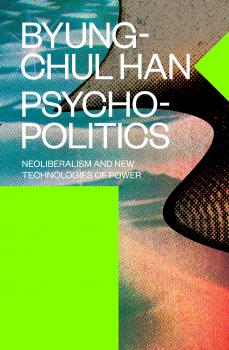ТОП просматриваемых книг сайта:
Афоризмы и цитаты
Различные книги в жанре Афоризмы и цитаты, доступные для чтения и скачиванияFrom Paideia to High Culture - Imelda Chlodna-Blach
Philosophy and Cultural Studies Revisited / Historisch-genetische Studien zur Philosophie und KulturgeschichteАннотация
The purpose of this book is to show the philosophical and anthropological foundation of the dispute about culture, especially in the perspective of the opposition between high and low culture. By analysing the most important achievements of Western philosophical reflection, from the Greeks and Romans through medieval scholasticism to Christian personalism, the author defends the concept of high culture and reveals its metaphysical significance for the human condition. The book also brings out the meaning of the concept of culture, shedding new light upon the long-disputed philosophical questions: who is the creator and subject of culture, what is culture in its essence, and what is its superior purpose?
From Paideia to High Culture - Imelda Chlodna-Blach
Philosophy and Cultural Studies Revisited / Historisch-genetische Studien zur Philosophie und KulturgeschichteАннотация
Exploring how neoliberalism has discovered the productive force of the psyche Byung-Chul Han, a star of German philosophy, continues his passionate critique of neoliberalism, trenchantly describing a regime of technological domination that, in contrast to Foucault’s biopower, has discovered the productive force of the psyche. In the course of discussing all the facets of neoliberal psychopolitics fueling our contemporary crisis of freedom, Han elaborates an analytical framework that provides an original theory of Big Data and a lucid phenomenology of emotion. But this provocative essay proposes counter models too, presenting a wealth of ideas and surprising alternatives at every turn.
Аннотация
A radical call for solidarity between humans and non-humans What is it that makes humans human? As science and technology challenge the boundaries between life and non-life, between organic and inorganic, this ancient question is more timely than ever. Acclaimed Object-Oriented philosopher Timothy Morton invites us to consider this philosophical issue as eminently political. It is in our relationship with non-humans that we decided the fate of our humanity. Becoming human, claims Morton, actually means creating a network of kindness and solidarity with non-human beings, in the name of a broader understanding of reality that both includes and overcomes the notion of species. Negotiating the politics of humanity is the first and crucial step to reclaim the upper scales of ecological coexistence, not to let Monsanto and cryogenically suspended billionaires to define them and own them.
Аннотация
A comprehensive philosophy of contemporary life and politics, by one of the sharpest critics of the present We live in an age of impotence. Stuck between global war and global finance, between identity and capital, we seem to be incapable of producing the radical change that is so desperately needed. Is there still a way to disentangle ourselves from a global order that shapes our politics as well as our imagination? In his most systematic book to date, renowned Italian theorist Franco Berardi tackles this question through a solid yet visionary analysis of the three fundamental concepts of Possibility, Potency, and Power. Characterizing Possibility as the content, Potency as the energy, and Power as the form, Berardi suggests that the road to emancipation unravels from the awareness that the field of the possible is only limited, and not created, by the power structures that implement it. Other futures and other worlds are always already inscribed within the present, despite power’s attempt at keeping them invisible. Overcoming any temptation of giving in to despair or nostalgia, Berardi proposes the notion of Futurability as a way to remind us that even within the darkness of our current crisis lies dormant the horizon of possibility.
Аннотация
A major essay on the thought of the great Italian Marxist An explosive analysis of the central strategic concepts in the thought of the great Italian Marxist, Anderson’s essay has been the subject of book-length attacks across four decades for its disentangling of the hesitations and contradictions in Gramsci’s highly original usage of such key dichotomies as East and West, domination and direction, hegemony and dictatorship, state and civil society, war of position and war of movement. In a critical tribute to the international richness of Gramsci’s work, it shows how deeply embedded these notions were in the revolutionary debates in Tsarist Russia and Wilhemine Germany, in which arguments criss-crossed between Plekhanov, Lenin, Kautsky, Luxemburg, Lukács and Trotsky, with contemporary echoes in Brecht and Benjamin. A new preface considers the objections this account of Gramsci provoked and the reasons for them.
Аннотация
In The Philosophy of Marx, Etienne Balibar provides an unsurpassed introduction to Marx and his followers. Written by one of political theory's leading thinkers, it examines all the key areas of Marx's writings in their wider historical and theoretical context – including the concepts of class struggle, ideology, humanism, progress, determinism, commodity fetishism, and the state. The Philosophy of Marx is a gateway into the thought of one of history's great minds. In this new updated edition to this now classic work, Balibar has added a substantial new introduction and two new texts, on the Theses on Feuerbach and on Marx's political theory. Complete with key 'information boxes' for the student to make the most challenging areas of theory easy to understand, this remains the best available introduction to the most important thinker of the past 200 years.
Аннотация
A pithy and readable challenge to the concept of human rights What are the origins of human rights? This question, rarely asked before the end of the Cold War, has in recent years become a major focus of historical and ideological strife. In this sequence of reflective and critical studies, Samuel Moyn engages with some of the leading interpreters of human rights, thinkers who have been creating a field from scratch without due reflection on the local and temporal contexts of the stories they are telling. Having staked out his owns claims about the postwar origins of human rights discourse in his acclaimed Last Utopia, Moyn, in this volume, takes issue with rival conceptions – including, especially, those that underlie justifications of humanitarian intervention.
Аннотация
Rancière’s magnum opus on the aesthetic. Composed in a series of scenes, Aisthesis–Rancière’s definitive statement on the aesthetic–takes its reader from Dresden in 1764 to New York in 1941. Along the way, we view the Belvedere Torso with Winckelmann, accompany Hegel to the museum and Mallarmé to the Folies-Bergère, attend a lecture by Emerson, visit exhibitions in Paris and New York, factories in Berlin, and film sets in Moscow and Hollywood. Rancière uses these sites and events—some famous, others forgotten—to ask what becomes art and what comes of it. He shows how a regime of artistic perception and interpretation was constituted and transformed by erasing the specificities of the different arts, as well as the borders that separated them from ordinary experience. This incisive study provides a history of artistic modernity far removed from the conventional postures of modernism.










